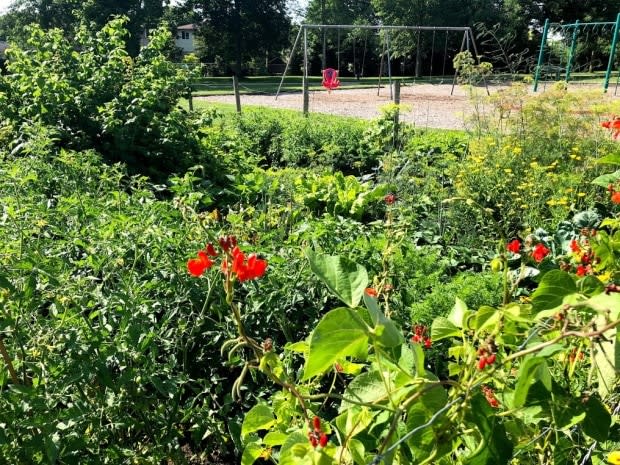Declare community gardens essential, non-profit urges
The province should declare community gardens essential and allow them to stay open during the COVID-19 pandemic, according to the head of a local food security non-profit.
Currently, the province has lumped the gardens in with "community amenities" and ordered them closed amid the effort to slow the spread of the respiratory illness.
There are approximately 100 community gardens in Ottawa, and "if we even put a very conservative estimate of 1.5 people benefiting per plot in Ottawa … that is a minimum of 7,000 people in Ottawa accessing food through these food gardens," said Moe Garahan, executive director of Just Food.
"Outdoor community gardens being listed under recreation activities would have made sense if community gardening was strictly a recreational activity. But for most people across Ontario that are engaged in community gardening, it is actually … an essential food service," Garahan told CBC Radio's Ottawa Morning on Thursday.
They're looking for assurances that they'll be able to provide that food to their families this season. - Moe Garahan, Just Food
The gardens also help support food banks and charities, and therefore provide nourishment to some of Ontario's most vulnerable, Garahan said.
"It's not a metaphorical statement when I say that literally tonnes of fresh food grown right here in community gardens is donated to food emergency distribution points throughout throughout Ottawa."
On Monday, the province announced it was expanding the scope of emergency measures designed to halt the spread of COVID-19, which has sickened more than 2,300 people and caused at least 37 deaths in Ontario.
Under the expanded order, all shared "recreational amenities" in Ontario are closed until April 14. They include playgrounds, sports fields, and off-leash dog parks — and community gardens.

Thousands rely on gardens for food
Garahan said she's hoping the province's decision to lump community gardens in with tennis courts and baseball diamonds was simply an "oversight."
The gardens should instead be grouped in with grocery stores and farmers markets, Garahan said. Both have been allowed to stay open during the pandemic, but with strict safety protocols in place.
Garahan says it is possible to tend the garden plots while still observing physical distancing measures called for by public health officials, in the same way protocols have been developed that allow people to continue shopping in grocery stores.
"Both individual and public safety are of primary importance to us," she said.
Province adjusting 'as required'
"What we're looking for is for community gardens to be re-categorized to its proper place under the Ministry of Agriculture Food, and Rural Affairs, that recognizes it as the essential food service that is in Ontario," Garahan said.
CBC asked the office of Vic Fedeli, Ontario's minister of economic development, why the province did not place community gardens on the list of essential businesses and organizations.
In an emailed response, Robert Gibson, a spokesperson for Fedeli, did not explain the decision, but did say the province's plan was to "adjust the list as required."
"If a business has reviewed the list of essential workplaces and did not see their line of business represented, they can fill out an application for consideration to be added to the expanded list of essential workplaces," Gibson wrote.
Garahan said that with most gardeners getting access to their plots in May, there's still time to reverse the decision, though for many, the season is already underway.
"Gardeners across Ottawa have already purchased their seeds, have already started their seedlings in their houses. They're looking for assurances that they'll be able to provide that food to their families this season," she said.

